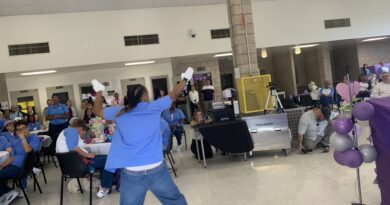What are the consequences of circumventing the restitution process?
Our editor-in-chief explains some hard learned lessons at CCWF

Individuals appearing before the Board of Parole Hearings (BPH/Board) over the last two years have noticed a trend in some of their denials: circumvention of the restitution process.
Many people coming to prison have been assessed restitution as part of their sentence. Some people have $200 to pay while others have $2,000,000 with interest. Whatever the amount, it was a penalty assessed by the judge in order to punish the crime committed.
Pursuant to California Penal Code as well as Title 15, incarcerated individuals have to pay 50% of all money earned or sent to their accounts. It is a significant amount and many people try to think of ways to shop more – usually by asking a loved one in the community to send money to another incarcerated individual’s account. Many people know it’s against the rules but ignore that fact so they can shop the maximum amount, now $300 per month.
Cathleen Quinn appeared before BPH on March 30, 2022. During her hearing, she was asked if she had ever circumvented the restitution process since she still owed restitution at the time. Quinn admitted that she had and was found suitable for parole in that hearing.
In November 2022, Quinn received a redacted investigative summary report from BPH. In the report, Quinn’s account activity was summarized and dates money had been sent from her outside contacts to her inside acquaintances were noted. Quinn’s parole date was rescinded in part because of her circumvention of the restitution process.
Tiffany Blanchard was found suitable for parole, on Oct. 4, 2023. After serving a total of more than 35 years, Blanchard was elated.
In January 2024, Blanchard was visited by a BPH investigator. Unlike Quinn, Blanchard had not been asked about restitution during her hearing. The investigator shared that an investigation is triggered upon a suitability finding due to the high rates of Employment Development Department fraud that were uncovered during and after the COVID-19 pandemic. The investigator shared that Blanchard’s account activity revealed that she had received money from different people, some of whom were in contact with other incarcerated individuals. When asked if she had ever shopped for anyone, Blanchard was honest and said she had.
“We’re like a family in here,” Blanchard shared. “I didn’t profit from shopping for anyone. Some people would charge $20 for every $100 sent, but I did it as a favor for a couple of my friends over the years.”
With the Trust Restitution Accounting Canteen System (TRACS) now in place, CDCR staff are able to identify who sends money to whom and draw conclusions about who may be subverting the restitution process. It makes sense: If I have no contact with John Smith but my roommate does, and John Smith is sending me money, it is easy to conclude that my roommate is sending me money through her loved one so I can shop for her. If my roommate and I are both going to Board, the panel would use this information against both of us since we have each subverted the restitution process.
BPH takes these allegations seriously. This behavior shows continued criminal thinking, violates the law, and demonstrates the character defects that brought us to prison in the first place. Losing 50% of your money is significant; no one disputes that. But restitution is assessed in order to make a victim or victim’s family whole, insofar as such a thing is possible. It is seen as a form of direct amends for victims.
“I didn’t think about it in those terms at first, but now I realize the harm I caused,” Quinn said. “It’s our responsibility to make amends to our victims.” Notably, Quinn has now paid off her restitution in part because of this issue being raised during her parole hearings.
The investigator told Blanchard it was likely that her case would be sent before the en banc panel of the BPH to determine if her parole grant would stand. That is precisely what happened. Blanchard wrote a statement to be read during the en banc hearing and she was honest about how she had shopped for a few people over her more than three decades of incarceration. After the hearing, Blanchard’s parole grant was rescinded.
Blanchard then appeared before a panel for a rescission hearing. She admitted what she had done and acknowledged the criminal thinking behind that decision. Nevertheless, Blanchard was denied parole for three years.
Since it generally takes at least two, if not three or more, people to circumvent the restitution process, BPH could prosecute people for these offenses. The offenses would be misdemeanors (a violation of Penal Code 155), but would be a conviction nonetheless.
Appearing before the BPH to determine one’s parole suitability is a stressful thing. Every individual appearing before a panel strives to show how much they have changed in order to be found suitable to reenter society. If one has circumvented the restitution process and is asked about it in their hearing, be honest: Chances are the panel is already aware of the behavior.
For Blanchard, being able to parole when she was first eligible would have meant the world to her.
“I would have been able to spend that time with my parents, who have since passed away,” she said.
Despite that, Blanchard looks forward to paroling so she can spend time with her two children and nine grandchildren.
“My daughter was 18 months old and I was 6 months pregnant with my son when I was arrested. I can’t wait to spend time with my family. If I had known shopping for someone could lead to my date being pulled, I never would have done it.”



